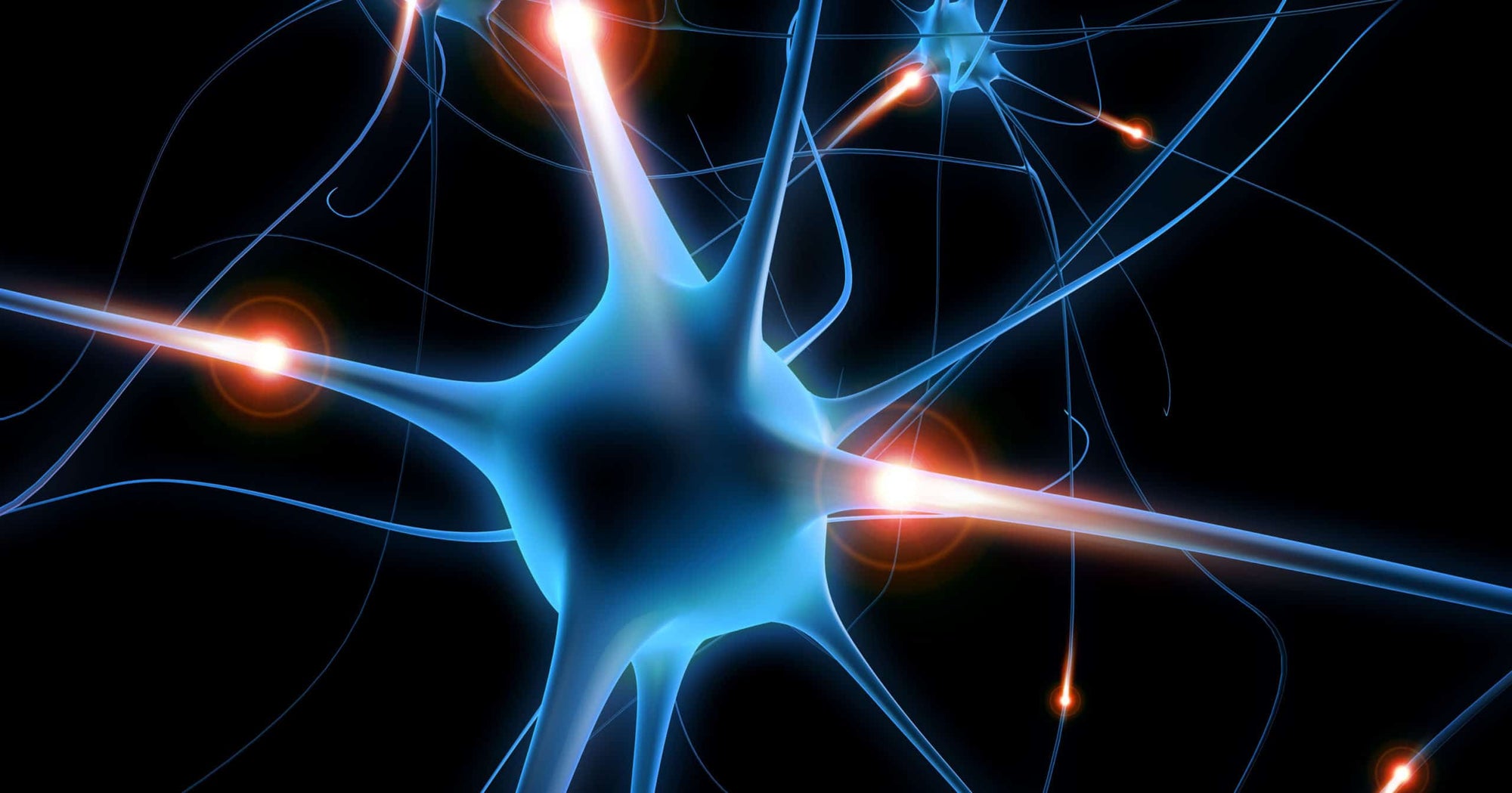You can't go far without hearing the word "hacking" in today's world. You've heard of computer hacking. You've heard of election hacking. But what about biohacking? Unlike your traditional computer hacking, biohacks entail the use of biology and science to upgrade and improve your mind and body.
If you're looking for a more detailed breakdown check out our ultimate guide for stress management techniques! We've got your back with this guide to help you manage the stress in life. Let's get into biohacks!
What are biohacks?
Biohacks serve many purposes. Many people have found ways to use biology to their advantage to improve their sleep, mood, stress levels, and wellness.
Biohacking is also called DIY biology, and this term refers to a variety of ways you can "manipulate" your brain and body to perform at their best.
Now, we know you're wondering what some of these biohacks are.
Here are just a few common examples:
- Intermittent fasting
- Bluelight blocking
- Increasing vitamin D levels
- Red light therapy
The best stress-relieving biohacks
But for today's blog, we're going to focus on the best biohacks for stress relief. There are some simple but powerful ways you can improve your life and your wellbeing by minimizing stress levels and the toll they take on your body.
Virtually every person on the planet deals with stress of one kind or another throughout their life. Most of us regularly encounter stressful situations of varying degrees, not to mention the stress of a traumatic event.
Whether you experience acute stress or long-term chronic stress, stress affects the body and mind in several ways. From an increased likelihood of heart disease, problems sleeping, weight loss or gain, and mental health problems, stress can cause significant and lasting damage. It's no wonder we're all on the lookout for ways to lower our stress levels.
Here are 7 biohacks to help you manage your stress.
1. Get outside
Are you feeling particularly moody or stressed out? There are studies that show spending time outside can help!
Here are a few examples:
- A UK study found when people were physically active in natural outdoor settings instead of "synthetic environments," they were less angry, tired, and sad.
- A 2015 study from the Proceedings of the National Academy of Sciences found walking in a park reduced blood flow to the part of the brain commonly associated with brooding.
- Finally, a famous study found patients healing from gallbladder surgery who looked out on a tree garden as opposed to a brick wall healed, on average, a day faster, needed significantly less pain medication, and had fewer post-surgical complications.
If you needed a reason to spend more time in the great outdoors, you've found it!
2. Practice gratitude
Gratitude is one of the easiest and most effective biohacks to reduce stress.
Gratitude begets gratitude. The more time you spend focusing on being grateful for what you have and what is, the more likely you are to continue practicing that gratitude. You'll gradually start to reap its benefits because you've trained your brain to do so.
Among those benefits? Lower stress levels, boosted mood, better sleep, and improved self-esteem, to name a few!
3. Meditation
Meditation has often been a study subject to see how effective it is at reducing stress, boosting your mood, and improving your overall wellbeing.
As it turns out, it's proven to be an incredibly useful biohacking tool with a range of cognitive and non-cognitive benefits. Take a look at this study that found a meditation practice is associated with increased job satisfaction, job performance, and work engagement.
4. Aromatherapy
What smell do you associate with comfort or pleasure? For some, it's their grandma's baking. For others, it might be the smell of the ocean or a particular laundry detergent. These smells tie to positive memories and feelings. And when we smell them, our brain goes back to that happy moment when we first smelled that particular scent.
There are strong correlations between our olfactory center and our emotional and memory centers, each of which is part of the limbic system. This system controls many human behaviors, including obtaining food and self-preservation.
Scent also has a unique and powerful impact on the brain. In fact, smells can actually create feelings and memories in the brain. Preliminary research also shows that aromatherapy can actually alter brain waves and behavior. Not to mention, aromatherapy is known to decrease cortisol (the stress hormone) in the body.
So it's no wonder there are specific biohacks designed to stimulate it!
For centuries, aromatherapy has been used to positively impact mood and wellbeing. It can be particularly beneficial as a stress reliever if you pick the right scents.
These three scents most commonly associate with stress relief:
- Lavender
- Frankincense
- Peppermint
But not every person experiences scents the same way. It can take some time to find the right scent(s) that have a calming effect on you. Some people prefer to use candles for aromatherapy, while others might use essential oils, bath salts, etc.
Like reading about biohacks for stress relief? You won't want to miss out on other hacks for dealing with stress and anxiety in this post.
5. Breathwork
Even though it only takes a few seconds, we often forget to take deep breaths. Breathwork is a powerful stress reliever. It's even called "the body's built-in stress reliever!"
In 1970, a Harvard researcher named Herbert Benson coined the term "The Relaxation Response." His scientific research proved that short periods of meditation (with breathing as a focus) could actually alter the body's stress response.
In his more recent work, his research demonstrates how that same technique can lead to genetic changes. Its future use could even include treating diseases with a stress component.
Several different deep breathing techniques can improve your mood, stress levels, alertness, and more. A few examples include roll breathing, morning breathing, and belly breathing.
6. Autonomous sensory meridian response (ASMR)
It's got a fancy name, but ASMR is actually pretty simple.
ASMR can lower your heart rate (and your stress levels!) just by listening to pleasant sounds like tapping, crackling, and whispering. These sounds have the effect of "tickling" your brain by stimulating your scalp and moving down your body.
And all it takes to experience it for yourself is searching "ASMR" on YouTube and finding a track you like!
7. Vagus nerve stimulation (VNS)
The Vagus nerve is the longest nerve of the autonomic nervous system (the system that regulates a variety of body processes that take place without conscious effort). This nerve's strength is called "vagal tone." Low vagal tone often links to chronic health conditions, mood problems, inflammation, and even mental health issues.
Interested in diving deeper? Take a look at this study that found low vagal tone associates with impaired post-stress recovery of cardiovascular, endocrine, and immune markers.
But if you have a low vagal tone, what can you do to strengthen it?
There are a few different ways to stimulate the vagus nerve. In this case, we're focusing on what's known as ear-based tVNS (transcutaneous VNS) today. The effects of ear-based tVNS are proven in several studies. It can effectively improve mood and stress levels, sleep, focus and cognition, and athletic performance recovery in many people.
Now, how can you experience these effects for yourself? Our favorite way is using Xen by Nuevana technology! This includes our headphones that use electrical stimulation of the vagus nerve to send messages to the brain to generate calming sensations to the body.
Headphones and stress relief?
Yes — that's right! But not just any headphones will do.
Xen by Nuevana is wellness technology invented by a top cardiac surgeon and backed by science. Xen Headphones connect to a handheld device that generates an electrical current, all controlled by an app on your phone. Xen uses a revolutionary platform to send gentle, calming electrical signals via our patented earbuds, targeting a branch of the vagus nerve in the ear. It then seamlessly syncs vagus nerve stimulation with your music to reduce stress.
And the best part? You can easily integrate it into your daily routine! Experience the benefits of Xen by Neuvana, including promoting balance, relaxation, and stress levels, all while commuting, working at your desk, watching TV, or just hanging out with friends.
Interested in learning more about Xen by Neuvana? Take a look at our FAQ page where we cover what it feels like to use Xen headphones when to use Xen by Neuvana technology, and much more.
Shop the entire Xen by Neuvana collection here.
If you enjoyed this post, you won't want to miss these either:
People Who Can Benefit from Wearing Neuvana Stress-Reducing Earbuds





